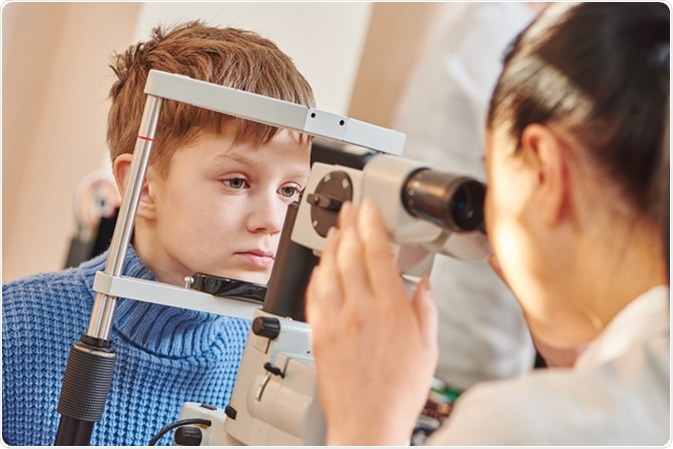Pediatrics in Andalusia: Compassionate Look After Expanding Households
Wiki Article
Is Refractive Surgical Treatment Right for You? Elements to Think About for Better Eyecare
In the realm of eye care, the decision to undergo refractive surgical treatment is a substantial one that demands thoughtful factor to consider. As people seek clearness and flexibility from the constraints of corrective lenses, many factors enter into play when figuring out the viability of such a procedure. From the ins and outs of one's eye health and wellness to the ins and outs of individual assumptions and everyday habits, each element holds importance in the wider landscape of refractive surgery candidacy. By reviewing these vital elements with treatment and accuracy, a more clear course towards educated decision-making emerges.Eye Health And Wellness Examination
When thinking about refractive surgical procedure, an extensive eye health assessment is important to analyze the viability of the procedure for each and every individual. andalusia pediatrics. This evaluation involves a collection of tests and exams performed by an eye care professional to determine the total health and wellness of the eyes, the existence of any kind of hidden problems, and the security of the refractive mistakeDuring the assessment, different aspects are thought about, such as the person's clinical history, current eye prescription, corneal density, pupil dimension, and tear movie quality. These evaluations assist to identify any type of contraindications to refractive surgery, such as corneal irregularities, cataracts, or unattended eye infections. In addition, the assessment aids to handle person assumptions relating to the prospective outcomes of the surgical treatment based upon their distinct eye attributes.
Inevitably, the eye health assessment is necessary in ensuring the safety and effectiveness of refractive surgical procedure, as it provides valuable understandings into the person's eye wellness condition and aids determine one of the most suitable treatment options for accomplishing optimal visual end results. (eye doctors in andalusia)
Way Of Living Evaluation
A thorough lifestyle assessment is integral in establishing the suitability of refractive surgical procedure for an individual's aesthetic correction requirements. Lifestyle aspects such as occupation, pastimes, and day-to-day activities play a crucial function in the decision-making procedure regarding refractive surgical treatment.Furthermore, way of life practices such as sports participation, exterior tasks, or even skincare regimens can affect the recovery process and overall success of refractive surgical procedure. By performing a detailed way of life assessment, eye care specialists can tailor their suggestions and treatment strategies to satisfy the distinct demands of each individual, eventually leading to improved aesthetic results and complete satisfaction.
Expectation Placement

Clients require to comprehend that while numerous individuals attain 20/20 vision or much better adhering to refractive surgical treatment, some might still call for glasses for certain tasks like analysis or driving at night. Taking care of these expectations aids prevent frustration and frustration post-surgery, leading to an extra positive general experience for the individual.
Threat Analysis
Aspects that might enhance the threat of problems consist of age, certain medical problems like autoimmune conditions, unstable vision prescription, slim corneas, and impractical patient expectations. In addition, picking a experienced and competent cosmetic surgeon, following pre and post-operative care guidelines carefully, and disclosing any type of appropriate clinical background can help reduce dangers.
To lessen the chance of complications, ophthalmologists carry out comprehensive pre-operative evaluations to identify any contraindications to surgical treatment. They likewise go over the possible threats and advantages with individuals throughout the consultation procedure. By participating in open communication and shared decision-making, both the ophthalmologist and the patient can collaborate to establish if refractive surgery is the ideal option based on individual risk accounts and wanted end results.
Examination Value
Thinking about the important duty of educated decision-making in analyzing dangers and prospective problems in refractive surgery, the consultation procedure holds considerable significance in guiding clients towards optimal end results. During the consultation, the eye doctor examines the client's eye health, refractive mistakes, and overall viability for surgery. This first evaluation is essential in determining one of the most suitable treatment for every person, taking right into account elements such as corneal density, pupil dimension, and existing eye problems.Additionally, the assessment acts as an opportunity for people to discuss their assumptions, issues, and any kind of inquiries they may have pertaining to the surgical treatment. Clear interaction between the doctor and the patient is important to make sure realistic assumptions and a complete understanding of the potential dangers and advantages involved.
Furthermore, the appointment allows the specialist to clarify the different medical options readily available, their respective outcomes, and the post-operative treatment called for. This comprehensive discussion equips people to make well-informed decisions regarding their eye treatment, leading to better fulfillment and end results post-surgery.
Conclusion
To conclude, individuals thinking about refractive surgical procedure should undergo a thorough eye health evaluation, assess their way of living routines, align their expectations with possible end results, assess the associated risks, and prioritize assessments with eye care experts. These elements play a critical duty in establishing the viability of refractive surgery for each and every person, making sure ideal results and fulfillment with the procedure.Clients considering refractive surgery often have high assumptions pertaining to the results, anticipating best vision without the requirement for glasses or contact lenses. While refractive surgery can substantially enhance vision and decrease dependency on aesthetic aids, it is essential for patients to understand that outcomes might vary based on specific aspects such as the degree of refractive mistake, corneal thickness, and general eye health and wellness.
By engaging in open interaction and shared decision-making, both the ophthalmologist and the individual can work with each other to identify if refractive surgery is the appropriate option based on specific danger accounts and wanted results.
Considering the important role of educated decision-making in evaluating threats and prospective difficulties in refractive surgical treatment, the consultation process holds considerable importance in assisting patients towards optimum outcomes. Throughout the consultation, the ophthalmologist reviews the patient's eye health and wellness, refractive errors, and total suitability for surgical treatment.
Report this wiki page